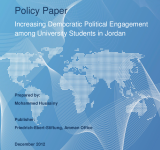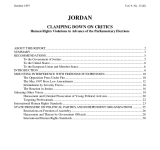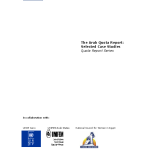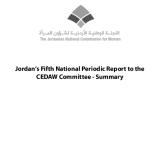The purpose of this paper is to examine the issues that are limiting the democratic perception of Jordanian university students' political engagement in university life. The paper defines this issue as being directly linked with both students' freedom and representative bodies. It offers a description of the historical and legal backgrounds associated with students' political participation in Jordanian universities;; and examines the core issues associated with students' political participation. This paper also categorizes the various problems that limit students' participation;; including intervention of security offices in student affairs;; the weakness of student clubs;; and the election mechanisms of student elections. This paper also discusses the absence of a student body that unifies various Jordanian universities;; disciplinary regulations;; university violence;; and the inability to students to express their political thoughts within the university.



